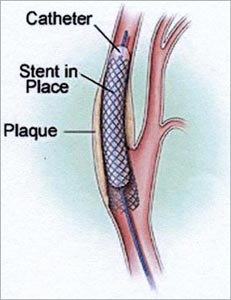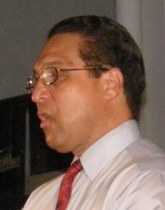Archive for March 23rd, 2011

Elizabeth Taylor dies in LA medical centre
 (BBC): Dame Elizabeth Taylor, one of the 20th Century’s biggest movie stars, has died in Los Angeles at the age of 79. The double Oscar-winning actress had a long history of ill health and was being treated for symptoms of congestive heart failure. Her four children were with her when she died at Cedars-Sinai Medical Center, her publicist said. In a statement, her son Michael Wilding called her "an extraordinary woman who lived life to the fullest." Dame Elizabeth’s most famous films included National Velvet, Cleopatra and Who’s Afraid of Virginia Woolf? She was equally well-known for her glamour and film partnership with Richard Burton, one of seven husbands.
(BBC): Dame Elizabeth Taylor, one of the 20th Century’s biggest movie stars, has died in Los Angeles at the age of 79. The double Oscar-winning actress had a long history of ill health and was being treated for symptoms of congestive heart failure. Her four children were with her when she died at Cedars-Sinai Medical Center, her publicist said. In a statement, her son Michael Wilding called her "an extraordinary woman who lived life to the fullest." Dame Elizabeth’s most famous films included National Velvet, Cleopatra and Who’s Afraid of Virginia Woolf? She was equally well-known for her glamour and film partnership with Richard Burton, one of seven husbands.
In her prime, she was arguably one of the world’s greatest actresses and most beautiful women.
Her colourful private life, screen success and Aids charity work ensured she was never far from the spotlight since finding fame at the age of 12.
The peak of her film career came in the 1950s and 1960s, with four Oscar nominations in a row from 1958 to 1961.

LIME announces new free mobile services
(CNS): Regional telecommunications firm LIME says it has introduced a number of new services for mobile users that offer greater flexibility and convenience. The company said in a release the move would “further enhance its regional mobile offering” and that the new interface would provide easy, instant access to a wide range of LIME services. These include the ability for customers to top up their own or other prepaid accounts and check balances on both postpaid & prepaid services via a text code. Access to Text Connect is free of charge even when roaming LIME said and customers just “Dial the Code” *129# for direct access to a menu of LIME mobile services.
“As of March 24th, 2011, LIME is giving its customers even more value for money, greater flexibility, ease and convenience by just using a simple code” said Grace Silvera, LIME’s Regional Vice President, Marketing & Corporate Communications. “LIME’s enhanced service is designed to significantly enhance our customers’ experience by offering a single point of data access, with a simple three-digit code that is available across LIME Caribbean.”
The access to mobile services is just the beginning as in the coming months LIME is to launch new services and enhancements to deliver solutions to all of its customers. For more information on this new service, visit www.lime.com, or www.facebook.com/time4lime

More options for the prevention of strokes
 (CNS): A new study has found that two very different medical procedures are both equally effective for patients at risk for stroke due to blocked carotid arteries (the arteries in the neck that carry blood and oxygen to the brain). Stroke is the third leading cause of death in the United States and can be caused by blocked blood flow to the brain, so a number of leading hospitals in the US undertook the CREST (Carotid Revascularization Endarterectomy vs. Stenting Trial) study on more than 2500 patients to see if two separate procedures would be equally effective in treating the condition.
(CNS): A new study has found that two very different medical procedures are both equally effective for patients at risk for stroke due to blocked carotid arteries (the arteries in the neck that carry blood and oxygen to the brain). Stroke is the third leading cause of death in the United States and can be caused by blocked blood flow to the brain, so a number of leading hospitals in the US undertook the CREST (Carotid Revascularization Endarterectomy vs. Stenting Trial) study on more than 2500 patients to see if two separate procedures would be equally effective in treating the condition.
Doctors at Baptist Cardiac and Vascular Institute, one of the participating hospitals in the CREST study, are excited by the results because they say it gives them more options when treating patients, as strokes are often preventable.
The study is the largest study of its kind and looked at the two ways of treating someone who has blocked arteries that might cause a stroke: carotid endarterectomy, which is a surgical procedure in which an incision is made in the neck and then in the artery. The surgeon removes plaque that is blocking the artery and stitches the incisions. The other, newer procedure is called carotid artery stenting. This is less invasive and requires a tiny metal tube called a stent to be threaded up into the blocked artery through a small incision in the groin and then expanded to keep the artery open. No large incisions are involved.
A patient’s medical history and age may dictate which option is best for them. Study investigators discovered that there is a slightly higher rate of heart attack following the surgical procedure versus a slightly higher rate of stroke after stenting. Age also seems to play a role in outcomes. Those over theage of 70 had better results with surgery, while those younger than 70 did better with stents.
Further studies are ongoing to determine whether these differences are significant, and doctors continue to debate the results of the trial.
Doctors say it is essential for patients to discuss their options with their doctor, and to choose a doctor who has performed many cases, whichever treatment method is advised.

Ethics commission says boards need closer scrutiny
 (CNS): There is a need to examine potential conflicts of interest and the capabilities of statutory board and committee members that deal with public money, the Commission for Standards in Public Life has said in a report. The commission raised concerns about a lack of transparency regarding the government’s tendering process as well as the necessity for expertise on the Central Tenders Committee in order to ensure contracts are awarded in the best interest of the public. It also said it intended to examine the controversial issues surrounding the selection of people for and the abilities of the members that are appointed to other public boards and whether they are equipped to do their jobs.
(CNS): There is a need to examine potential conflicts of interest and the capabilities of statutory board and committee members that deal with public money, the Commission for Standards in Public Life has said in a report. The commission raised concerns about a lack of transparency regarding the government’s tendering process as well as the necessity for expertise on the Central Tenders Committee in order to ensure contracts are awarded in the best interest of the public. It also said it intended to examine the controversial issues surrounding the selection of people for and the abilities of the members that are appointed to other public boards and whether they are equipped to do their jobs.
The commission said it intended to take an “in depth look” at statutory board appointments and how “conflicts of interest or corruption” perceived or real could be avoided. “The commission is particularly interested in the qualifications of members and whether or not members are equipped to make the best decisions and to handle the matters falling within their remit,” the report said. It also revealed that the commission will be considering whether specific professional expertise might be required of people appointed to serve on these bodies.
The Commission for Standards in Public Life, which was created under the new constitution as a watchdog for all public servants, tabled its second report in the Legislative Assembly last week, making a number of recommendations about what it sees as one of the most important areas of its remit – the Central Tenders Committee.
The commission says it is particularly concerned with the government’s procurement process and is making a number of recommendations about creating a more transparent system. It says members should be disclosing their business interests to ensure there were no conflicts of interest when it comes to awarding contracts for public money.
Currently the CTC acts on the recommendations of a technical team, which is usually appointed by the ministry that is tendering the contract. Those members, alongside the CTC, currently do all of their work behind closed doors and the only information that is usually made public during the process is the number of bids received and then finally the details of the winning bid. The commission is now examining how members are appointed to the CTC and noted that it should also have technical members.
“The commission believes that the membership of the CTC should comprise individuals who possess the requisite professional aptitudes and skills from which to draw their experiences in making sound decisions,” it revealed in its report. It also said the CTCwould better serve the public if it published the minutes of its meetings and its agendas, thoguh the report did not address the issue of the technical committees.
In the wake of an examination by the Auditor General’s Office, which stated that the procurement process, if followed correctly, is robust, the commission said there was scope for improvement. The CSPL said that it has asked the CTC chair to recommend improvements and address what he believes are weaknesses in the system. It has also raised the question of whether smaller contracts should also be going through the tendering process.
At present the relevant government department can award a contract to anyone it sees fit if the value is under $250,000 and the commission wondered if they should be tendered in order to preserve “honesty, integrity, impartiality and objectivity” in the doling out of public cash.
The report further revealed that the commission is still waiting on legislation that it requires in order to fulfil its constitutional mandate. It said that over the past six months it had worked on the draft standards in public life bill and the commission’s chair, Karin Thompson, a lawyer herself, has been pushing for the advancement of the law.

Hospital offers hearing service for new babies
 (CNS): The Cayman Islands Health Services Authority has recently installed new equipment which will enable it to test the hearing of all infants born at the George Town hospital. It has also started a monthly clinic to offer the test to babies born elsewhere. The new service will enable early identification of hearing disorders that will better equip physicians to guide intervention, treatment and counseling to families on managing hearing loss that may be detected in their newborn. “We are extremely proud of this new service as it closes another gap in services that had previously existed in the Cayman Islands,” said HSA Medical Director Dr Greg Hoeksema.
(CNS): The Cayman Islands Health Services Authority has recently installed new equipment which will enable it to test the hearing of all infants born at the George Town hospital. It has also started a monthly clinic to offer the test to babies born elsewhere. The new service will enable early identification of hearing disorders that will better equip physicians to guide intervention, treatment and counseling to families on managing hearing loss that may be detected in their newborn. “We are extremely proud of this new service as it closes another gap in services that had previously existed in the Cayman Islands,” said HSA Medical Director Dr Greg Hoeksema.
“It is a significant step forward in the quality of care and reflects our commitment to constant improvement of both patient safety and the scope of services we provide. Furthermore, it is a terrific example of the work now being done by the Caring for Life Foundation in partnership with the HSA on behalf of the people of Cayman,” the hospital’s senior doctor added.
The testing uses external electrodes to measure the auditory brainstem response, while tubes placed in the ear assess otoacoustic emissions. In simpler terms, this means painless sensors are placed on the baby’s head and ears to measure brain wave activity associated with hearing. Both processes are non-invasive, require about 20 minutes to complete and can be done while the baby is sleeping or in a quiet state, explained Dr Hoeksema.
HSA CEO Lizzette Yearwood said the new service would guide referrals for early intervention like speech therapy and audiology more quickly to improve outcomes for all children with hearing loss. “It is a vitally important new service we are now able to offer, and we are notifying every private doctor and OB/GYN in the Cayman Islands, encouraging them to avail themselves — and their patients — of this service” she added.
While the hearing testing equipment was financed solely through the HSA, the authority was able to underwrite the costs of personnel training for the new equipment with the assistance of the recently established Caring for Life Foundation. The foundation was launched last November to help the authority fund new equipment, research, and education to boost HSA services and capabilities.
Caring for Life’s Foundation Chairman, ScotiaBank Director of Private Banking Bruce John, said he was pleased Caring for Life was able to fund the training programme for the new equipment, fulfilling its promise as a charitable trust.
“The devoted professionals at the HSA have done excellent work in the last few years, improving the quality and scope of care, but, particularly in these difficult economic times of tight budgets and reduced expenditures, the organisation needs the assistance we can offer,” he said. “It is a perfect example of what can be accomplished through public-private partnerships, and we think stands as an example for future advances in local health care.
“We are very pleased to have been able to play a role in this, realising that everyone in the Cayman Islands benefits. Certainly, in this case, families and newborns are helped to ensure the long-term management of their healthcare. What better way to make our first contribution of Caring for Life funds than in the health of newborn babies in Cayman.” John added.
At the foundation’s November launch at a Governor’s House ceremony, John pointed to a five-page list detailing $8.7 million of needed equipment and improvements “for the medical, maternity and surgical wards, the operating theatre, accident and emergency, dialysis, pathology laboratory, the hospital’s plant and facilities, and the critical care unit, just to name a few”.
Yearwood said the new hearing equipment was possible because of steadily improving finances at the HSA, and reminded everyone that prompt payment of all outstanding medical bills was key to the authority’s financial health and re-investment strategy, ploughing profits back into expansion of services.
With the new equipment, she said, all babies born at the Cayman Islands Hospital are now screened before discharge. The hospital’s Paediatric Clinic will offer monthly auditory screenings for babies born outside the hospital.
For further information or questions, contact Nurse Charmin Fennell at 244-2502.

Opposition pushes to be heard
 (CNS): The leader of the opposition was doing all he could in the Legislative Assembly last week to provoke a debate over the situation surrounding the Public Accounts Committee but was blocked by the government and the speaker. Despite the increasing difficulty the opposition faces in getting the subjects it feels are important on the floor of the country’s parliament, Alden McLaughlin says he intends to “push and shove” and do “all it takes” to ensure the opposition participates and is not merely a silent observer to the actions of government. Efforts by McLaughlin to use Standing Orders to force the government to address the PAC chairmanship may have failed but not for want of trying.
(CNS): The leader of the opposition was doing all he could in the Legislative Assembly last week to provoke a debate over the situation surrounding the Public Accounts Committee but was blocked by the government and the speaker. Despite the increasing difficulty the opposition faces in getting the subjects it feels are important on the floor of the country’s parliament, Alden McLaughlin says he intends to “push and shove” and do “all it takes” to ensure the opposition participates and is not merely a silent observer to the actions of government. Efforts by McLaughlin to use Standing Orders to force the government to address the PAC chairmanship may have failed but not for want of trying.
Following the resignation of Ezzard Miller from the Public Accounts Committee and with no sign of the government placing the vacancy problem on the agenda during Thursday’s sitting of the Legislative Assembly, McLaughlin wrote to the speaker ahead of the opening. He raised his concerns in the correspondence that government had not placed what he considered to be an urgent matter on the order paper.
Although the premier did make a statement criticising Miller over the resignation and comments he had made in an article on CNS, there was no debate as the rules of the LA prohibit the opposition from responding to government statements, other than questions of clarity.
With no apparent intention by government to tackle the problems which had led to Miller’s resignation to allow PAC to continue its business, McLaughlin sought to use an adjournment debate to provoke the House into a discussion of what needed to happen over the future of the committee.
In his letter to the speaker the opposition leader described the PAC as “crucial” in its “function as the watchdog of the public purse”, and that Miller’s frustrations over not being able to get a quorum had led to his resignation.
“It should therefore be obvious to the government that it is not only necessary to fill the vacant chairmanship position, but also to address the issue of the attendance of members and the quorum of the committee,” the leader of the opposition wrote in his correspondence to Mary Lawrence. “These are issues of urgent national importance and they ought to be addressed at the earliest possible opportunity, that being today’s sitting of the House.”
McLaughlin said he wished to raise the issue on a motion to adjourn under Standing Order 11, which says any member is entitled to move a motion between two items of business for the purpose of debating an important matter unless the speaker considers it an abuse of the rules. The goal of such a motion is not to adjourn the House but it is one of the few ways opposition members can focus attention on a specific issue which government is not addressing and create a debate.
Despite making it clear in his letter the spirit and intention of the move when he attempted to bring the motion to the floor, the emphatic objections from government set off a heated dispute across the floor as the premier and his team fought to stop McLaughlin’s efforts.
Members of the government front bench accused McLaughlin of using “tricks” to bring the matter to the floor, despite admitting that it was indeed a critical issue that the government members wereseeking to avoid. McLaughlin denied it was a trick but said it was one of the “few tools available to the opposition” to raise important matters, as was the case in question over PAC and how to deal with the committee’s make up in the future.
However, the wrangling between the government and opposition benches led to the speaker allowing McLaughlin to propose the motion but refusing him the opportunity to speak to it, closing down the debate.
Miller also indicated that he had made a request to the speaker to make a statement to the members regarding the reasons for his resignation but he said he received no response from Lawrence and was also unable to raise the subject on the floor of the parliament.
In his statement the premier said government intends to change the line-up and structure of the committee during the budget sessions, which is currently expected to meet sometime in May. McKeeva Bush has not yet made it clear how he intends to restructure the committee in order to ensure enough members turn up to make a quorum. Nor is it yet clear how the auditor general will now make his reports public or tackle the outstanding public accounts with no legislative committee to report to.
Speaking after the sitting, McLaughlin said he had hoped to suggest increasing the committee from five members to seven — one each from the government and opposition benches– but maintaining the quorum for a meeting at three. He said this would focus government’s attention on the committee because, if Miller was to reconsider and return under those circumstances as chair, it would mean a quorum could always be formed with opposition members, motivating government to make sure at least one of its four representatives would show up.
However, speaking at a press briefing on Monday morning, Miller said he would not return under those circumstances as he felt that the manipulation of the committee was the wrong way and that the rules of parliamentary democracy cannot keep being bent because people are not obeying by them. He said he was still waiting to hear what the premier’s original offer to him would have been before his underlings muddied the water with their accusations.
“I still want to know whichof the three government members of the PAC the premier was offering to remove that he did not feel was doing the job they were elected to do,” Miller pondered.

UK Chancellor to go after tax dodgers
 (WSJ): Chancellor of the Exchequer George Osborne will use Wednesday’s budget to announce a series o anti-tax-dodging measures aimed at raising about £1 billion ($1.6 billion) in extra revenue each year. The crackdown on tax avoidance will address cases of disguised remuneration—where pay is routed through trusts or other vehicles to avoid paying tax, a person familiar with the matter said. The anti-avoidance package will be the biggest introduced since 2004, the person said. Osborne, who is keen to show he isn’t going easy on the wealthy, will also announce a consultation to examine extending air-passenger duty to private jets —which could raise tens of billions of pounds for the government, the person said.
(WSJ): Chancellor of the Exchequer George Osborne will use Wednesday’s budget to announce a series o anti-tax-dodging measures aimed at raising about £1 billion ($1.6 billion) in extra revenue each year. The crackdown on tax avoidance will address cases of disguised remuneration—where pay is routed through trusts or other vehicles to avoid paying tax, a person familiar with the matter said. The anti-avoidance package will be the biggest introduced since 2004, the person said. Osborne, who is keen to show he isn’t going easy on the wealthy, will also announce a consultation to examine extending air-passenger duty to private jets —which could raise tens of billions of pounds for the government, the person said.
The chancellor will update the so-called non-dom tax, which applies to U.K. residents who claim their true home is elsewhere for tax purposes.
Osborne is scheduled to appear before the House of Commons on Wednesday to present proposals for the government’s next annual spending plan. The tax-avoidance package will combine new initiatives and moves outlined in December, when the Treasury closed tax loopholes used by multinational companies.

Fuel costs cut into cruise line profits
 (Bloomberg): Carnival Corp. says its first-quarter net income fell 13 percent, pinched by higher-than-expected fuel prices. The cruise operator also cut its full-year earnings guidance to a range below Wall Street’s view on Tuesday. Its stock dropped 11 cents to $40.90 in Tuesday premarket trading. The Miami company earned $152 million, or 19 cents per share, for the period ended Feb. 28. That’s down from $175 million, or 22 cents per share, a year ago. Wall Street was already anticipating slimmer earnings and Carnival said lower than-expected costs helped offset fuel prices that rose 9 percent. Revenue rose 8 percent to $3.42 billion on higher ticket prices and passengers spending more on board its ships.
(Bloomberg): Carnival Corp. says its first-quarter net income fell 13 percent, pinched by higher-than-expected fuel prices. The cruise operator also cut its full-year earnings guidance to a range below Wall Street’s view on Tuesday. Its stock dropped 11 cents to $40.90 in Tuesday premarket trading. The Miami company earned $152 million, or 19 cents per share, for the period ended Feb. 28. That’s down from $175 million, or 22 cents per share, a year ago. Wall Street was already anticipating slimmer earnings and Carnival said lower than-expected costs helped offset fuel prices that rose 9 percent. Revenue rose 8 percent to $3.42 billion on higher ticket prices and passengers spending more on board its ships.

Ratings agency confident in hedge fund sector
 (Investment Week): Moody’s says it has seen signs of improvement and increased profitability in the hedge fund sector this year following strong performance in 2010. The rating agency says the positive outlook for hedge funds follows the strong performance posted by the industry since Q3 last year. Moody’s adds in its latest review of the hedge fund industry beneficial results have renewed market confidence and boosted net inflows. The post-crisis environment has also triggered structural shifts amongst several hedge fund industry stakeholders, the agency says, with institutional investors, particularly pension funds and banks, prone to increasing their allocations to hedge funds and absolute return vehicles in general.
(Investment Week): Moody’s says it has seen signs of improvement and increased profitability in the hedge fund sector this year following strong performance in 2010. The rating agency says the positive outlook for hedge funds follows the strong performance posted by the industry since Q3 last year. Moody’s adds in its latest review of the hedge fund industry beneficial results have renewed market confidence and boosted net inflows. The post-crisis environment has also triggered structural shifts amongst several hedge fund industry stakeholders, the agency says, with institutional investors, particularly pension funds and banks, prone to increasing their allocations to hedge funds and absolute return vehicles in general.

One lane open on Rock Road, Cayman Brac
(CNS): Update Wednesday 10:18am – Rock Road remains partially blocked, with traffic able to use one lane in the area where an accident took place on Cayman Brac Monday. Three officers from the RCIPS Traffic Management Unit on Grand Cayman are on the island to investigate the single vehicle accident in which a woman, who was the passenger ona motorcycle, suffered serious head injury and was transported to the George Town hospital Monday night, 21 March. The bike she was on apparently skidded on some oil and crashed on Rock Road close to Horizon Building Supplies on the north side of the island at around 7pm that night.
The male rider of the bike was treated at Faith Hospital for shoulder and leg injuries and has since been released.
The section of the road where the accident happened, the only road on the north side of the Bluff, was closed all day yesterday and a police spokesperson said they are unable to say when it will reopen to the public. She said the officers needed to do a thorough investigation, which included a reconstruction, due to the seriousness of the incident.
"We would ask road users to be patient and we hope that they understand the need to take the action," she said.
Any witnesses to the collision should contact PC Stacy Stewart on 946-6254 or Cayman Brac police station on 948-0331.